Hindi cinema has a tendency towards stories that stretch over long periods of time. Days, at the least, but often months, often many years too (that old trope of children growing up has been a part of too many films to name). It is the unusual film, especially in the 50s and 60s, that extends over just a few hours. Solvaa Saal was one such; Gateway of India is another. Both films are about runaway girls who meet the loves of their lives in the course of one night. That, though, is where the resemblance stops.
Gateway of India begins with some ominous business. In a large house, some clandestine conversation is in progress. A wily old man is telling his minions how his wealthy brother, having died, has left all his wealth to his daughter Anju, but there are some papers too. Some papers, which this wicked old fellow is certain his niece knows the whereabouts of. All he needs is to get hold of those papers, and he will be all set. The problem is the faithful servant, Ramu, who is helping Anju and shielding her…
Unknown to this dastardly lot, Anju (Madhubala) and Ramu (?) are eavesdropping, horrified, on this conversation. Having heard enough to realize that both of them are in danger, they scurry away, Ramu to phone the cops.
But Bad Uncle’s men find him before he can do that, and kill old Ramu. Bad Uncle instructs his men to dump the body at Gateway of India (Anju overhears this), and goes off to start questioning Anju. Where are the papers? A terrified Anju says she has no idea, but Bad Uncle isn’t convinced. This girl knows more than she’s letting on. He has his men bundle her into their car and gives them orders to take her away to a safe place—where, obviously, more ruthless measures will be adopted to make Anju squeal.
Sometime later, Bad Uncle receives a frantic phone call from one of his henchmen: Anju pulled a knife on them (atta-girl!) and escaped. Bad Uncle is furious but he’s reassured that they are chasing her and bound to catch up sooner rather than later.
In the meantime, Anju has turned for help to the first in a series of men she will be approaching in the course of this night. Kishore (Pradeep Kumar) is driving by in his car, and agrees to give her a lift.
A little further on, though, he stops at a roadside tea stall—he tells a nervous Anju that the tea here is exceptional—and just then Anju sees her pursuers arrive. She dives down and hides near the dashboard, pleading with Kishore to drive on because some hoodlums who are chasing her have arrived. By then the chaiwallah has come to ask what Kishore would like, and though Kishore fobs him off and drives away, the chaiwallah has spotted Anju.
…so he tells Bad Uncle’s men that yes, he did see a girl fitting the description they offer. In that car there. Bad Uncle’s men drive off in pursuit.
Meanwhile, Kishore having asked where she’d like to go, and Anju having said anywhere, he takes her to a nightclub where he begins to sweet-talk Anju. This invites the ire of the local dancer (Anita Guha), whose song seems to spell WARNING in no uncertain terms.
Later still, Anju happens to overhear a violent exchange between Kishore and the dancer, who has assumed that Kishore and Anju are an item. The woman isn’t merely upset that Kishore has dumped her for Anju; she is furious, threatening Kishore that she’ll reveal all his ugly secrets, the murders and other crimes and so on.
She’s gone straight from the frying pan into the fire, Anju realizes. After an abortive attempt to escape (Kishore’s men don’t let her go), Anju goes to Kishore and pretends she’s fallen for his charm. She is so convincing that he happily agrees to carry on this acquaintance and meet her the next morning, at 6.30, at Gateway of India (Anju is the one who suggests the time and place). Anju is allowed to leave, and she slips outside only to discover that Bad Uncle’s henchmen are waiting in a jeep.
Anju manages to sneak her way past them and climb into the back of a parked car. The driver gets in right after and drives away. When he finally stops the car and gets off, Anju tries to slip by unobserved. No such luck—the man, Chandar (Chandrashekhar) had seen her even before he started driving. When he asks her where she needs to go, Anju rattles off a random address in the building beside which they’re standing.
Chandar insists on escorting her upstairs, and it’s only when they ring the doorbell of the flat Anju has pronounced as her own, and have entered, that Anju realizes this is Chandar’s own apartment. Her luck is terrible. Especially as Chandar’s elder sister (Manorama) runs a ‘dancing school’ and within moments has bulldozed Anju into getting dressed up, being renamed Darling (it’s a far more fashionable name, says Didi), and singing for a customer (Raj Mehra).
This is followed by another conversation on which Anju eavesdrops. The customer and Didi decide on Rs 10,000 as a fair price for Anju.
Anju, though horrified, dons a suave nonchalance and goes to Chandar. This customer is a very wealthy man, right? And he is obviously quite besotted with Anju, right? So why is Didi settling for such a paltry sum as Rs 10,000? Chandar must not settle for so little. Actually, even better, pretend that he, Chandar, is married to Darling; use that as a means to blackmail the customer. The man will be ready to give lakhs just to have his name cleared of trying to buy off another man’s wife.
Chandar, who is easily brainwashed, agrees readily. Meet me tomorrow morning at 6.30 at Gateway of India, Anju says, and confront the customer. I’ll be there, acting the part of your wife.
So Anju successfully leaves yet another shady bit of business and runs away. But again Bad Uncle’s men are around, and she flees—to the home of the ‘Spiritualist’, Johnny Walker (Johnny Walker). Though it’s not commented upon in the course of the following interaction, this ‘Spiritualist’ epithet is a tongue-in-cheek, punny reflection on Johnny Walker’s true occupation: a smuggler of Johnny Walker and other spirits.
Along with his colleague Tony (Tony Walker), Johnny is completely sozzled when Anju comes knocking frantically at their door. After some initial misunderstanding (they are convinced she’s a cop, and so are eager to get rid of her), Johnny and Tony accept that Anju (who calls herself ‘Darling’), like them, is on the run, and so decide she must be a drinking partner too. Anju proves good at both tossing away her drinks into a potted plant, and singing and dancing with Johnny while Tony bangs away at a piano.
Anju soon makes her escape from the Spiritualist’s. (Either there’s some inept editing at this stage or somebody messed up with the plot, but it later emerges that Anju promises Johnny a huge cache of diamonds—she implies a wealthy seth will bring them to Gateway of India next morning at 6.30, so if Johnny is there, he can no doubt find some way to lay his hands on those diamonds).
Bad Uncle’s henchmen are still in the vicinity, and this time Anju takes shelter in the home of Seth Laxmidas (Bhagwaan). When Anju first enters his home, this man is busy praying and thanking various women for the money they’ve brought him. Another eavesdropped conversation (between Laxmidas and his sister), and Anju realizes just how full Bombay seems to be of criminals.
This man, it turns out, has been married six times. Each time, he’s taken out an insurance policy in his wife’s name, and then calmly and cold-bloodedly murdered the woman: this one was poisoned, that one was pushed off a mountain, and so on. As a result, he and his sister are very comfortably off, their safe filled to the brim with money. The only problem is, Laxmidas has no children, and he so wants one to inherit all these ill-gotten gains…
Shortly after, Anju’s presence is revealed (much to her consternation) because of some mice creeping about. Laxmidas, after he’s got over the shock of finding an intruder at home (Anju introduces herself as ‘Lajwanti’), is quietly given some advice by his sister: this girl might be a good candidate as a wife. She might be able to provide him the heir he so yearns for.
So, egged on by his sister, Laxmidas shows off the contents of his safe—all of ten lakhs—to ‘Lajwanti’, and then somewhat shyly starts flirting with her. Anju catches on fairly fast. When Laxmidas proposes, she agrees after some initial hesitation. Why don’t they do it fast, she says? Tomorrow, at the civil court? Meet me at Gateway of India at 6.30. I will bring my mother along, because after all she would want to meet you too.
Anju then gets Laxmidas to drop her home—some unnamed address somewhere along the way, and when he’s gone (she’s shooed him off from outside the door), she lopes off too…
… and there come Bad Uncle’s henchmen. Anju, seeing a chaadar-covered figure asleep on the pavement, quickly lies down next to it and hijacks the chaadar. When the henchmen take themselves off, Anju introduces herself—as Chanchal, a debutant thief—to the fifth man she’s met this night: a gunda named Shankar (Om Prakash).
Shankar is a big fan of the popular singer Leela Mukherjee (Lata Mangeshkar, whose photo we see on the cover of an album he carries around). He even insists that ‘Chanchal’ sit and listen to a Leela Mukherjee song (this song is missing from the versions I’ve seen online, and is probably Sapne mein sajan se do baatein).
Anju, having realized just how brutal Shankar can be (he comes close to knifing her) decides to give him the slip—but this can only be done by offering some incentive. She tells him that she knows of a seth who has a safe full of money, ten lakhs of it, and who will be coming to Gateway of India the next morning. At 6.30. Shankar should come there; between them, they’ll grab the money.
Now it’s close to dawn, and Anju encounters the last man she’s going to be meeting in the course of this long, adventurous night. Prakash (Bharat Bhushan), an impoverished poet.
What next? What is going to happen at 6.30 at Gateway of India?
What I liked about this film:
A lot, actually. Much more than I’d expected, considering Gateway of India was a flop.
To start with, the story, which is so very unusual and offbeat. Yes, there are some plot holes here and there, but the story otherwise flows fairly smoothly. And it’s entertaining.
Then, the ensemble cast. There are some fairly big names here, what with Madhubala, Anita Guha, Bhagwan, Pradeep Kumar, Bharat Bhushan, Johnny Walker and Om Prakash, and all of them get pretty interesting sections. (It’s also fun to note that with each of the men, Madhubala gets one song—not necessarily sung by either of them, but part of the segment nevertheless). Madhubala herself is a joy, and her Anju is a far more feisty female than most that are passed off as such in Hindi cinema: she doesn’t merely run about or hit out, she also uses her wits again and again to get out of sticky situations. Very clever.
Last but not least, the music, by Madan Mohan. My favourite song from this film is the beautiful Do ghadi woh jo paas aa baithe, but several other songs—Yeh raah badi mushkil hai, Na hanso humpe zamaane ke hain thukraaye hue, and Dekhta chala gaya main zindagi ki raah mein—are very good too.
What I didn’t like:
The storyline gets a little repetitive after a while. You know that Anju will encounter another crook, and she will manage to give him the slip by telling him to come to Gateway of India at 6.30 the next morning. Of course, how she does this, and the entertaining interactions between Anju and the men, compensate—but still. Also, there’s some needless shrieking and melodrama at the end which I didn’t like, and some (seeming) plot holes that emerge at this point, or were possibly a result of poor editing of the video by whoever converted it to digital.
Despite that, though, a delightful film. Entertaining, with good songs, and a heroine who’s a delight to watch. What beats me, then, is why Gateway of India was such a flop. Was the story too offbeat for an audience used to the standard tropes of the masala film? Did they not like that the protagonist was a feisty woman? Did they not like Madhubala in this deglamourized avatar?
Why? Personally, I would happily watch this film all over again. If only a good quality version were available.


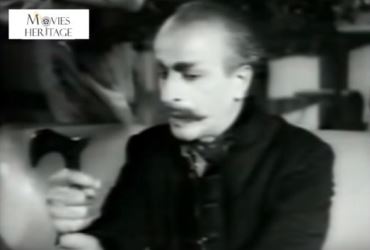
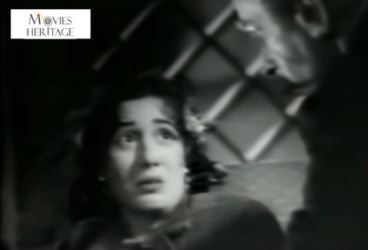
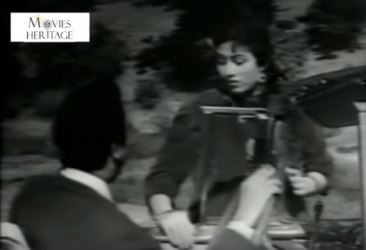
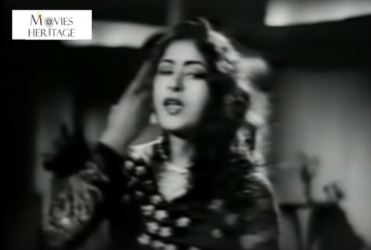
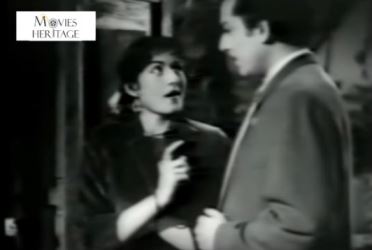
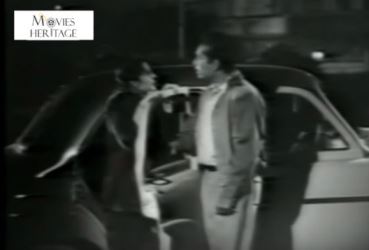
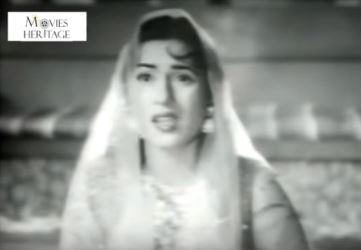
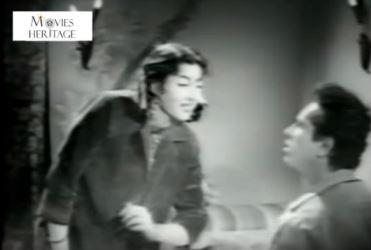
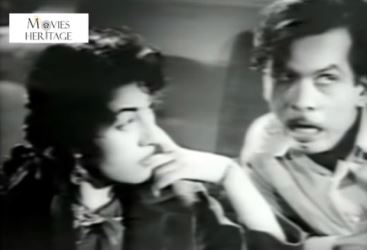
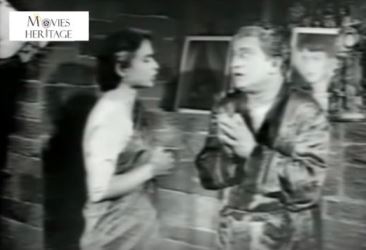
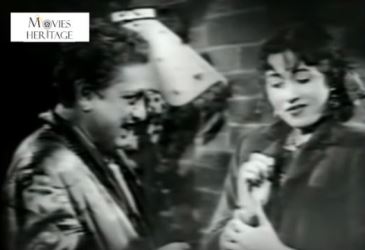
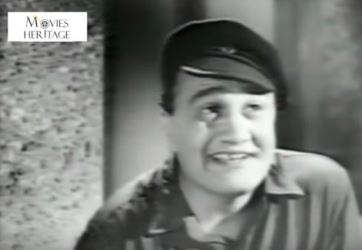
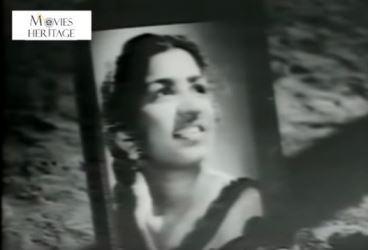
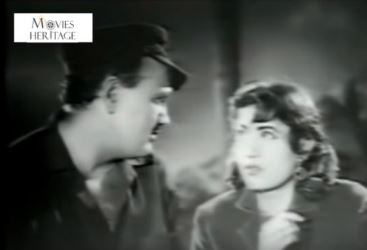
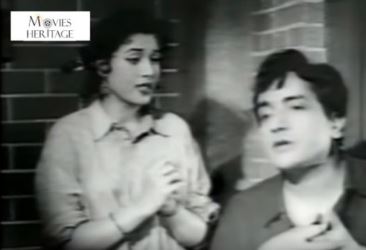
So happy to see this review Madhulika – thank you! This is one Madhubala film I can’t find anywhere on DVD (with English subtitles), although I’m pretty sure one exists. Most of the DVDs of her films I have are pretty poor quality and someone like Criterion really needs to get a hold of a few and clean them up. Anyway, with Gateway to India I’ll just have to satisfy myself with your review, and the song link you posted. Not sure if you’ve seen Kal Hamara Hai (1959), but that’s another one that probably didn’t get great reviews either and yet, it’s one I really like for some odd reason.
Great review, and as always, enjoyable to read.
LikeLike
Thank you, Chris! Glad you liked this. It’s a wonderful film. I do hope you can find it, sometime or the other – I have a feeling that this isn’t on DVD yet, because the print is so horrible. I think this is just a VCD… but MM Video seem to have a far better print available, at least from what I can see of the version of Do ghadi woh jo paas aa baithe. I do hope someone puts this one on DVD, and with subtitles, soon! It really deserves it.
I haven’t seen Kal Hamaara Hai, but am bookmarking it right now. Thanks for the recommendation!
LikeLike
This has convinced me.
Will watch this one.
LikeLike
Do! I hope you enjoy it as much as I did.
LikeLike
Very nice review. Will definitely see the movie if available on you tube. So this is one more movie Lata Mangeshkar ‘appears’ on screen,
Albeit as a photograph! Other movies to my knowledge were the Marathi ‘Pehli
Manglagaur’ and the Hindi’Pukar’. Are there any more?
Nitin
LikeLike
Ah, I hadn’t known the names of the Marathi films in which she’d appeared, though I did hear about a short-lived attempt to act as well. Don’t know of any other films in which she appeared, though.
The photograph seems to have annoyed Lata a good deal; I was told, after I posted this review, that she was so angry about that (it seems it was used without her permission) that she insisted the song – Sapne mein sajan se do baatein – be removed because of that.
LikeLike
Oh!
Quite interesting. Should watch someday.
And it was released in an era, when people used to visit theater just for songs. And the film has wonderful songs. Even Yeh raah badi Mushkil is not bad.
And Anita Guha is so interesting. She has appeared in so many films, but I think couldn’t leave a mark and finally got typecast for mythological films. She looks good in some of the films of late 50s. But that’s it. I dont like her in 60s.
Coming back to Gateway to India, the story is really so different, very unusual, and interesting. If handled properly, another ‘Ek Thi Ladki’ would have resulted. Some similarities the films have got, don’t you think so?
And was this film directed by Om Prakash himself? Or was he producer?
But it surely sounds entertaining.
Thanks for the review. It was splendid.
:-)
LikeLike
I’m glad you enjoyed this review, Anupji! Thank you. And yes, I agree completely re: Ek Thi Ladki – when I was watching this film, I too thought it bore a slight resemblance to that one, though this is even more offbeat than Ek Thi Ladki.
J. Om Prakash (different from the actor Om Prakash) was the director of this film as well as the producer.
Agree, too, about Anita Guha. She’s beautiful and a versatile actress (I’m thinking of Dekh Kabira Roya, for one!) but I think the typecasting in mythologicals ruined her career. Fine in the 50s, forgettable later on.
LikeLike
It is a terrific film with a rare woman centric story. I saw this on DVD twenty years ago and I am mystified why it was a flop. Great performance by Madhubala playing a strong woman who controls her own decisions as against the 50’s heroines who act helpless. Thank you for the excellent review, Madhu
LikeLike
Thank you! Glad you enjoyed this review, and glad that you agree it’s a great film. I cannot understand why it was a flop.
LikeLike
I had seen the Film way back sometime in 1958 and at that time, the song “Sapne me sajan se do baatein” was very much there, being played on the Gramophone by Om Prakash. It is believed to have been removed some time later and the reason is not far to see. If I were Lata Mangeshkar, I too would be offended that my song stirs the animal in a criminal who is prompted to commit a murder.
No doubt, Producer Director OM PRAKASH would have taken Lataji’s concurrence in the beginning, but as it turned out later, better sense prevailed on her and she insisted on the song being deleted.
Thankfully, the Song is still there on Vinyl and without doubt it is the best song of the Film. Poor Madan Mohan, he also had to delete that lovely number from the Film ADALAT – “Jana tha humse door”, although for a completely different reason and this time it was his own decision, for he felt insulted when a section of the audience had walked out of the hall when the song was being shown at the Premier Show.
With warm regards
PARTHA CHANDA
LikeLike
Thank you for explaining that anecdote behind the Lata song. Shortly after I posted this review, Sidharth Bhatia also explained this to me on Facebook. I wish J Om Prakash had taken Lata’s permission before using her photo (I would have thought that would be natural), hopefully we would still have had the song in the film.
LikeLike
The movie sounds like fun. Will sure try and watch it.
And Anita Guha was good at comedy I guess. She was good in Chacha Zindabad, with Kishore Kumar.
LikeLike
I haven’t seen Chacha Zindabad, but I have seen the comic side of Anita Guha in Dekh Kabira Roya and Mud-mudke Na Dekh, and I agree, she’s very good (not that she has a comic role in Gateway of India: here she’s basically just there for the song, and for a little scene before and after. No comedy at all.
Do watch the film whenever you get the time – I would like to know what you think of it!
LikeLike
Yes I plan to watch it. Your review has made me want to watch it as soon as possible.
LikeLike
I’ve heard about the film but never got around to watching it. What a delightful story! I should tell Tom to do some cleaning up, perhaps. :) Have to watch this. Thanks, Madhu.
LikeLike
Oh, yes! I totally second the idea of asking Tom to do some cleaning up on this one. :-) It deserves it, it’s such a delightful film.
LikeLike
He’s going to clean it up! :)
LikeLike
Ooh! Lovely news. :-)
LikeLike
I watched this on VCD a few years ago. The movie was enjoyable for one reason only i.e Madhubala. Just a smile on her face and it is as if the sun has risen. The rest of the cast are mostly wooden faces. I cannot recall a single movie of Pradeep or Bharat Bhushan which showcases their acting. As to why the movie flopped, my feeling is that a tighter script would have made the story more gripping. But Indian movie makers are too lazy to do their homework. Most of the second string of directors of the 60s and 70s do not deserve to be called directors. They lack the mental capacity, the feel for cinema to do a good job.
LikeLike
I disagree on that. I thought the cast as a whole was pretty competent (and this despite the fact that I’m a Madhubala fan). Yes, she is gorgeous, but the others’s acting was good too. Bharat Bhushan and Pradeep Kumar, I agree, aren’t great characters, but for their roles (which anyway are minuscule), I thought they were adequate.
LikeLike
I found some details about the producer – director of ‘ गेटवे ऑफ इंडिया ‘ in a book written by the great encyclopedia of hindi movies , Isak Mujawar .
According to that
Actor Omprakash was the producer – director of ‘ गेटवे ऑफ इंडिया ‘ .
Actor Omprakash became producer from the movie ‘झांझर ‘ in 1953 .
Then came ‘ लहरें ‘ nd ‘ दुनिया गोल हैं ‘.
MD C.Ramchandra was his partner in all these movies .
In 1957 , C.Ramchandra quitted nd Omprakash solely produced as well as directed ‘ गेटवे ऑफ इंडिया ‘ nd appointed Madan Mohan as MD .
Well , J. Omprakash joined cinema world later . Nd we all know that he was very fond of the letter ‘ A ‘ . So except
‘ भगवानदादा ‘ ( in which his grandson Hrithik Roshan acted as child artist ) , all other movie titles started by the letter
‘ अ ‘ .
LikeLike
This is very interesting. I had no idea. Thank you for the information!
LikeLike
Nicely reviewed , Madhu ji .
Those who haven’t watched it yet , definately would get tempted to watch it.
I fully agree with ” what I didn’t like ” , nd I , too , wondered why the movie was a flop .
Can it b considered as a road movie as it shows the journey of the heroine from one place to another nd another ?
The movie reminds me of ” जागते रहो ” which also happened to b a story of some hours , in the night .
It also reminds me of ” नया दिन नई रात ” in which , Jaya Bhaduri also encounters different different characters ( the main difference is that all of them were played by Sanjeev Kumar only . )
As usual , the screenshots in the post r nice . The review U hav written is so interesting that one would read it in a single reading .
Nd yes , I too hav अफसोस for ” सपनेमें सजनसे दो बातें ” which was removed from the film .
Madhu ji , thnx for the post .
LikeLike
I don’t know whether I would call this a road movie, because it’s not as if there’s really much travelling involved. But I agree about it being similar to Jaagte Raho (which also featured Pradeep Kumar in a not–very-flattering role) as well as Naya Din Nayi Raat.
Glad you liked this review, Pramodji. Thank you!
LikeLike
So nice to read this review of Gateway of India and even nicer to know that someone just on the same wavelength as far as this movie is concerned. Like you, I am also highly surprised to know (just now through your post only) that this movie was a flop. It’s a highly delightful movie which I had watched decades back on (perhaps) Zee TV. And Do Ghadi Woh Jo Paas Aa Baithe is a song which I myself love to sing. In my (humble and strictly personal) view, among the music directors of the bygone era, Madan Mohan was a real genius. And it’s himself only who always extracted the best out of Lata Mangeshkar. After reading this (equally delightful) review of Gateway of India, I am tempted to watch this movie again. Thanks for refreshing my memories of this movie.
LikeLike
Thank you so much for the appreciation. I’m so glad you enjoyed this review. And yes, I still cannot figure out why this film tanked. To me, at least, it had everything going for it – a good plot, great music, and the gorgeous Madhubala. But perhaps it was too offbeat? I don’t know.
Agree completely about Madan Mohan. He is one of my favourite composers. There are films I have watched solely because their music was composed by him.
(On a related note, I noticed in the ToI today that among the tunes to be played when Trump dines at Rashtrapati Bhavan – or someplace, I’ve forgotten where and can’t be bothered with checking up again – is Lag jaa gale. Pearls before swine).
LikeLiked by 1 person
Lag Ja Gale for Trump ? That’s news ! And your final reaction – ROFL.
LikeLike
:-) Lag jaa gale, given the amount of hugging going on, would be apt!
LikeLiked by 1 person
Ha ! Ha ! Ha ! Modi singing for Trump (and also putting the words of the song into action).
LikeLike
Of course, they could just as well be singing Tu mera main teri, duniya jale toh jale:
LikeLike
Pramod Godbole (above message) is right on dot.
The Producer and Director of this movie “Gateway of India” was Shri Om Prakash the actor. His company’s banner was “Light & Shade”.
It’s wrongly mentioned even on Wikepedia as “J.Om Prakash”…who was another person altogether.
Om Prakash the actor was my uncle…hence am writing to clear this misconception.
This can also be verified from the Title Cast when the movie plays out.
Best.
Krishi Dutt.
LikeLike
Thank you! And if you would like to write a guest post on your illustrious uncle – definitely one of Hindi cinema’s finest character actors – please feel free to contact me. I am sure blog readers would be very interested to know more about Om Prakash.
LikeLike